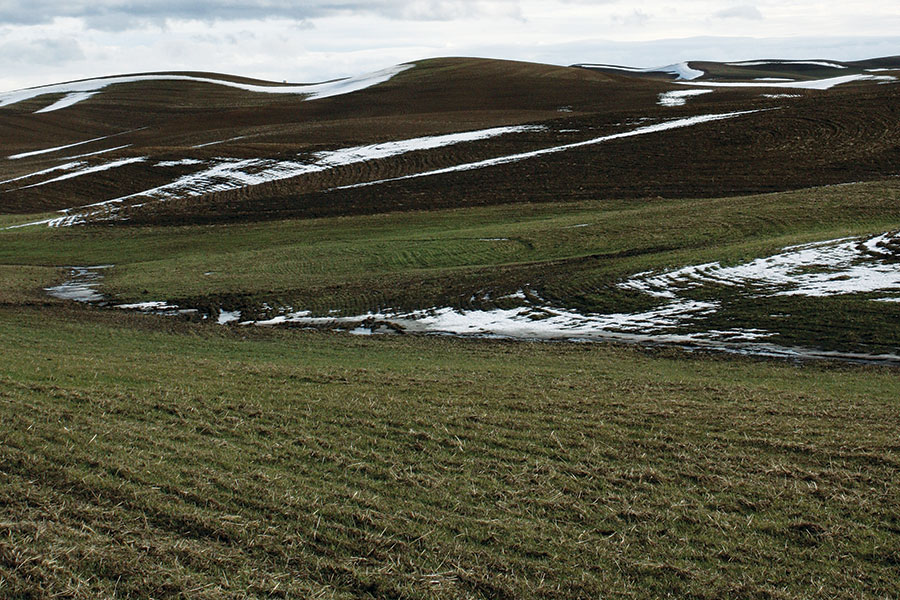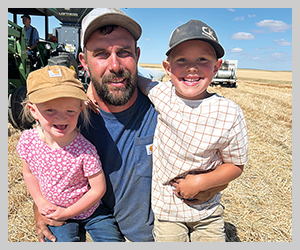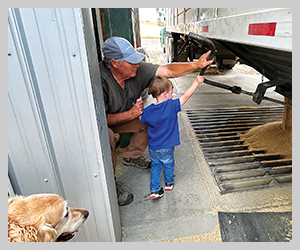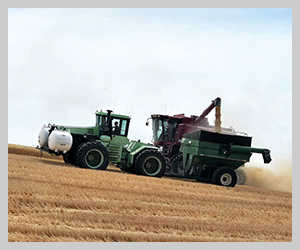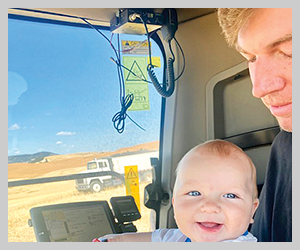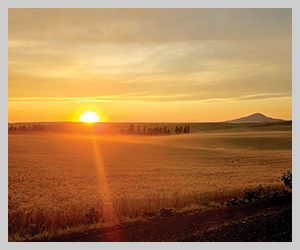Crop Insurance
Business has been protecting farmers’ crops for nearly 100 years
For nearly a century, farmers in the Palouse have been able to rely on Western Insurance to help them through crop failures, revenue losses, and everything else a crop insurance policy protects. Western Insurance was original formed as Fairfield Waverly Insurance in 1916 when Waverly Exchange Bank merged with the…
Premium subsidies increase on SCO, ECO plans
Glad tidings and Happy New Year! We’re going to review a subject matter I last covered in July 2021, the Enhanced Coverage Option (ECO), due to recent, increased premium subsidies for the coming year for both ECO and the Supplemental Coverage Option (SCO). SCO and ECO are coverage options that…
Closing the deal
An offhand comment about a crop insurance sales closing date during the January board meeting of the Washington Association of Wheat Growers (WAWG) sent Ben Thiel on a quest to see if he could streamline a crop insurance deadline to help growers for the 2026 crop year. Thanks to a…
Reviewing the Enhanced Coverage Option
Glad tidings readers! Our topic of conversation is a product that is not necessarily new, though it’s gaining traction and increased interest due to recent enhancements from the Risk Management Agency. When introduced in 2020, the Enhanced Coverage Option (ECO) premium costs outweighed the coverage benefit for many producers, making…
Crop insurance specialist helps farmers manage risk
Looking back, everything in Tomy Gertsch’s employment history seems like it was in preparation for her current job as a senior risk management specialist at the U.S. Department of Agriculture (USDA) Risk Management Agency’s (RMA) Spokane Regional Office. Gertsch grew up in Hermiston, Ore. While her family’s main occupation wasn’t…
Cover crop conundrum
With the last administration’s push on climate-smart practices, a lot of attention has been focused on cover crops. But how do you implement a cover crop if your cash crop is winter wheat, and you don’t have many other rotation options? The answer, according to Jake Westlin, vice president of…
Exploring crop insurance subsidies
Glad tidings and happy new year! Yes, we’re into February, but it’s still the new year, yes? I don’t believe “you have just 330 +/- shopping days until Christmas” would be preferred, though I’ve been wrong before. Let’s chat about premium subsidies for multiperil crop insurance and the basic premise…
Do landlords need crop insurance?
Our discussion topic is a review of a subject matter from January of 2018 — do landlords need crop insurance? I’ve made this comment previously and will again here: everyone has a different appetite for risk, varying circumstances cause each situation to be different. What risk(s) are present and, most…
A capitol effort
Staff and leaders of the Washington Association of Wheat Growers (WAWG) closed out January by traveling to Washington, D.C., to meet with federal legislators and take part in the National Association of Wheat Growers’ (NAWG) winter conference. “With so many critical issues being talked about in Congress, such as the…
Helping to ensure farmers’ financial survival
Rick Williams, a senior risk management specialist with the U.S. Department of Agriculture’s Risk Management Agency (RMA), was raised on a wheat and barley farm near Reardan, Wash. And while he didn’t take over the family farm, he put in many hours on tractors and combines over the years, even…










